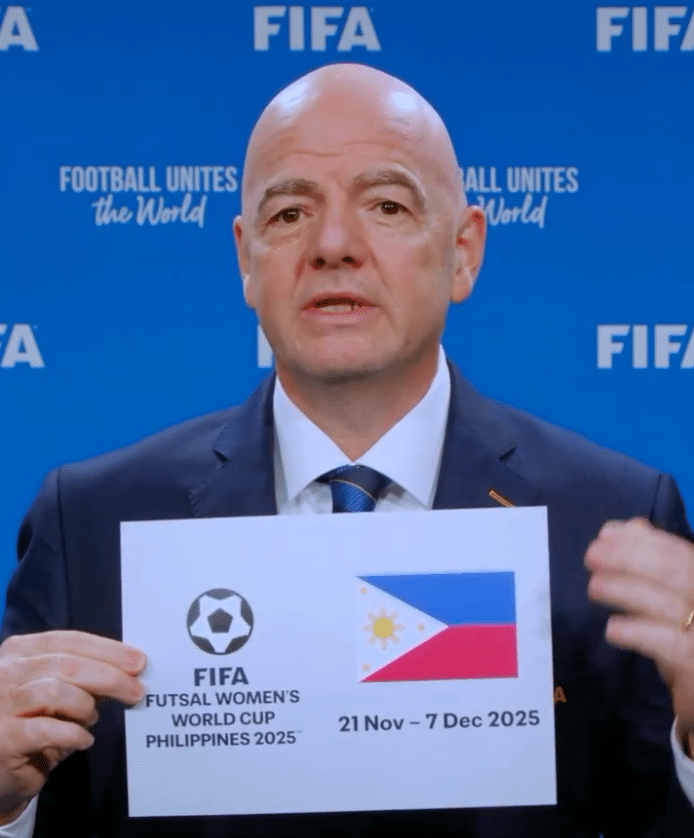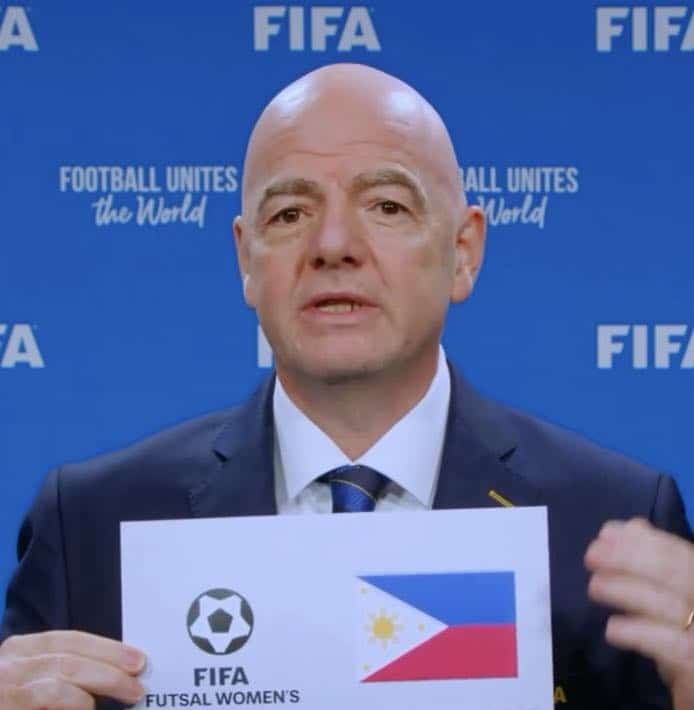
FIFA President Gianni Infantino. | Instagram video screen grab
CEBU CITY, Philippines — The stage is officially set for the Philippines to host the historic FIFA Women’s Futsal World Cup.
In a video posted on his Instagram on Friday, October 4, FIFA President Gianni Infantino said that the tournament will run from November 21 to December 5, 2025. It will feature 16 nations, representing six continental confederations, competing for the title.
The Philippines, as the host nation, will be among these teams, which will be divided into four groups during the group stage.
This tournament is one of four global women’s competitions organized by FIFA, alongside the FIFA Women’s World Cup, FIFA U-20 Women’s World Cup, and FIFA U-17 Women’s World Cup. It will feature three teams from the Asian Football Confederation (AFC), four teams from the Union of European Football Associations (UEFA), three from the South American Football Confederation (CONMEBOL), two from the Confederation of North, Central America and Caribbean Association Football (CONCACAF), two from the Confederation of African Football (CAF), and one from the Oceania Football Confederation (OFC).
ALSO READ:
Infantino confirms PH’s hosting of FIFA Women’s Futsal World Cup
PHL prepares for inaugural FIFA Futsal Women’s World Cup 2025
FACES OF CEBU: Shiela Estopito, Vince Niaga, futsal players
Competing teams secured their spots through various qualifying tournaments, including the 2025 Women’s Futsal Africa Cup of Nations, 2025 AFC Women’s Futsal Asian Cup, 2025 Copa América Women’s Futsal, 2024 OFC Futsal Women’s Nations Cup, and the 2025 UEFA Futsal Women’s World Cup qualifiers.
The Philippines has proposed three venues in Manila for the tournament at the SM Mall of Asia Arena, Smart Araneta Coliseum, and Ninoy Aquino Stadium.
While Cebu was initially considered as a potential host city, the Cebu Regional Football Association (CRFA) confirmed that it has been removed from the list due to concerns over the completion of a major sports facility under construction at the South Road Properties (SRP).
Had the venue in Cebu been ready in time, it would have been a significant achievement for the CRFA and the local football community. Unfortunately, the delay in construction led to the decision to exclude Cebu from the host cities.


